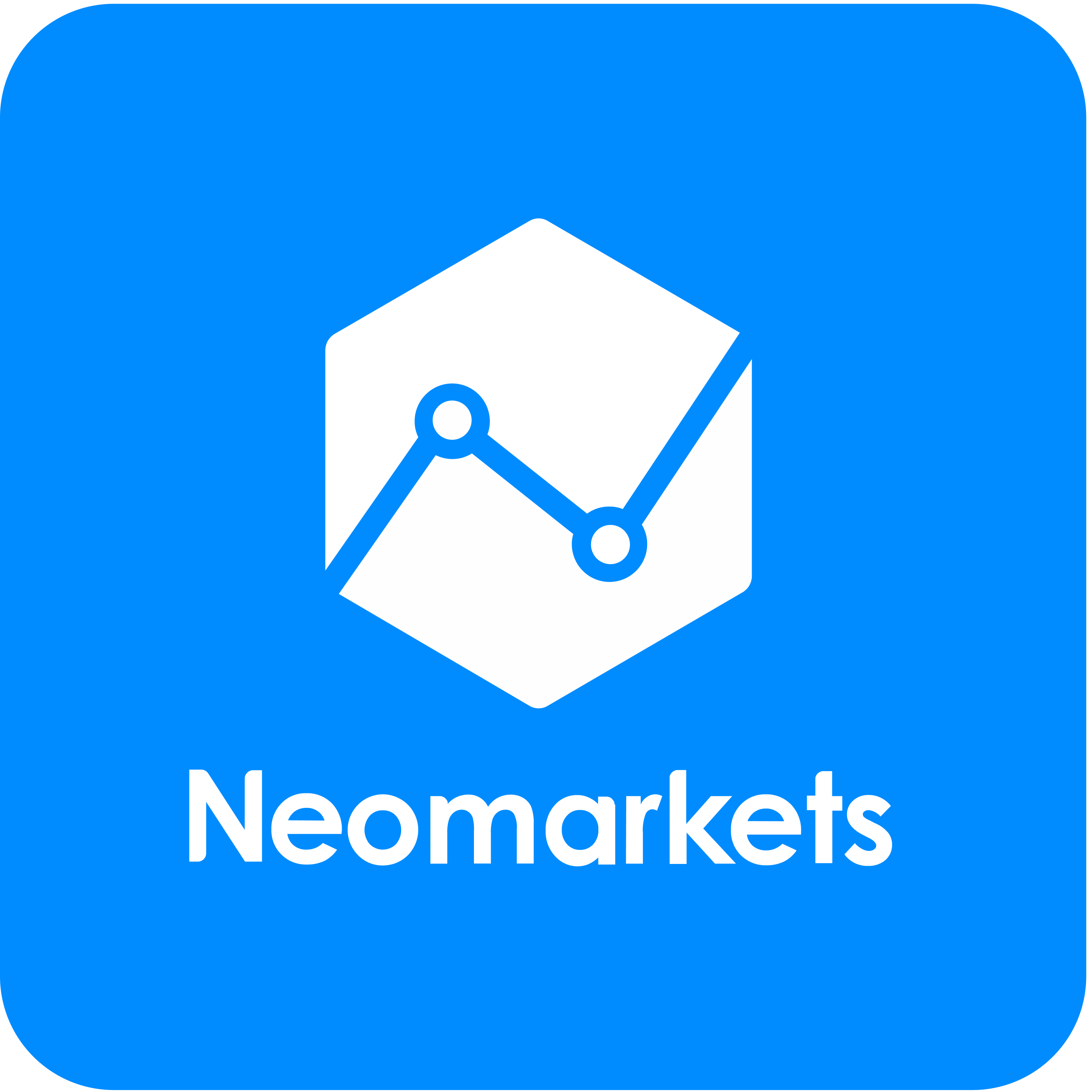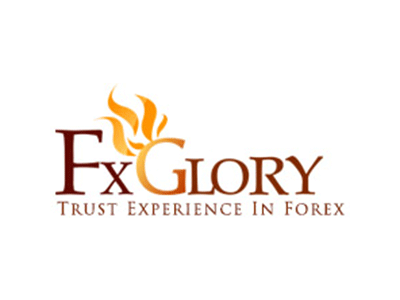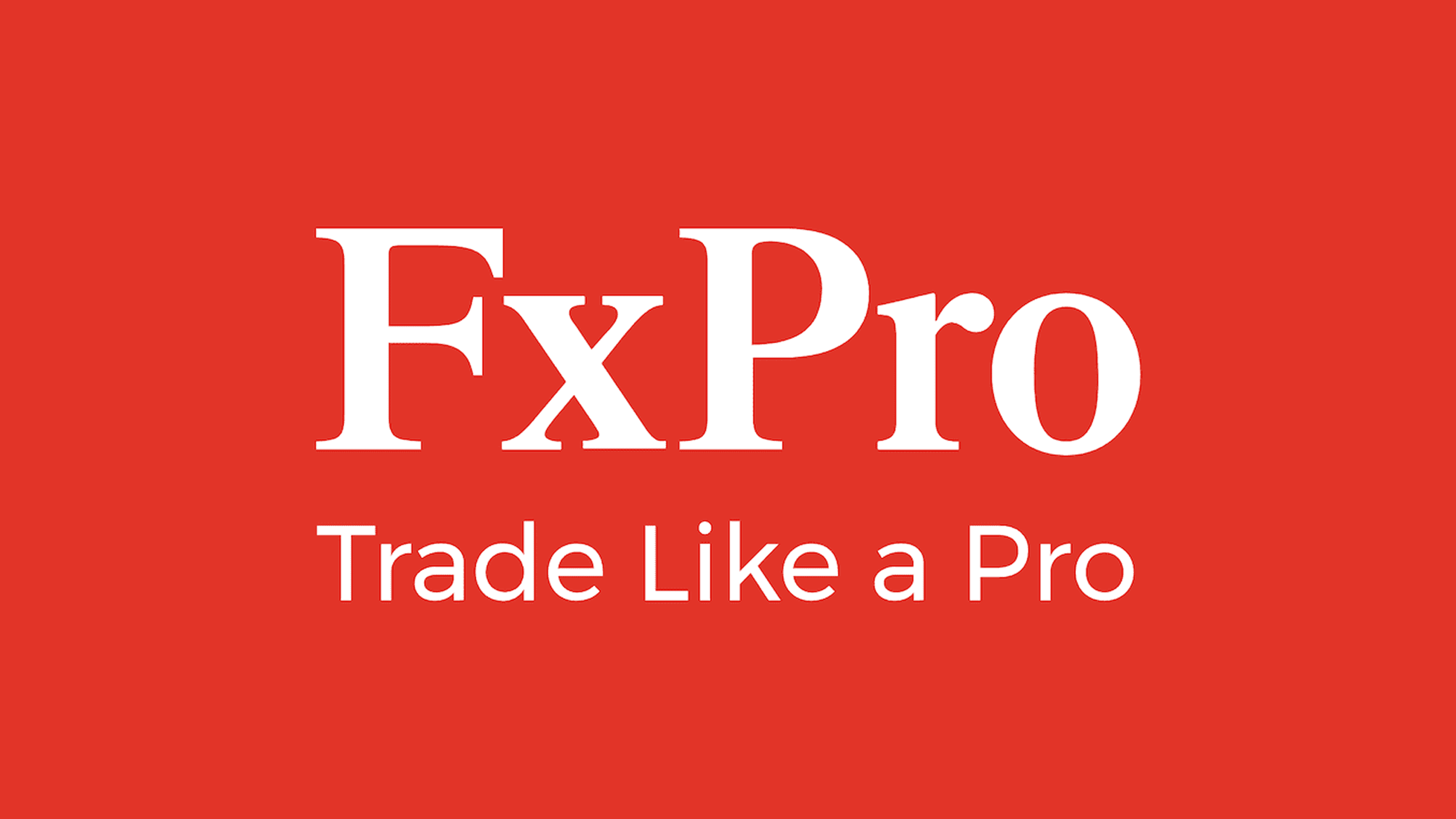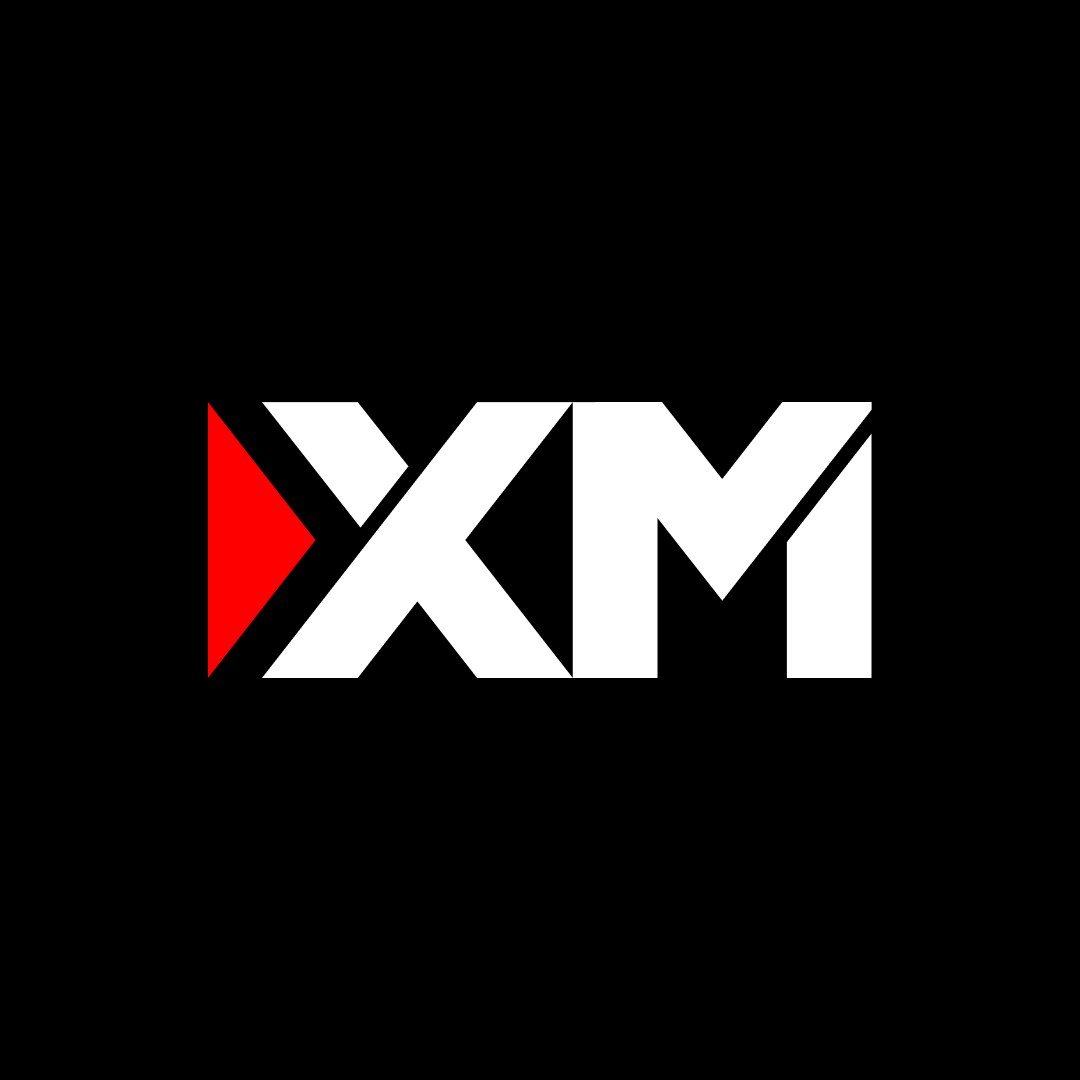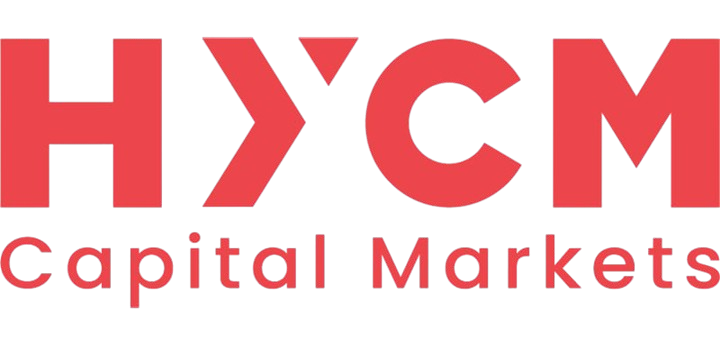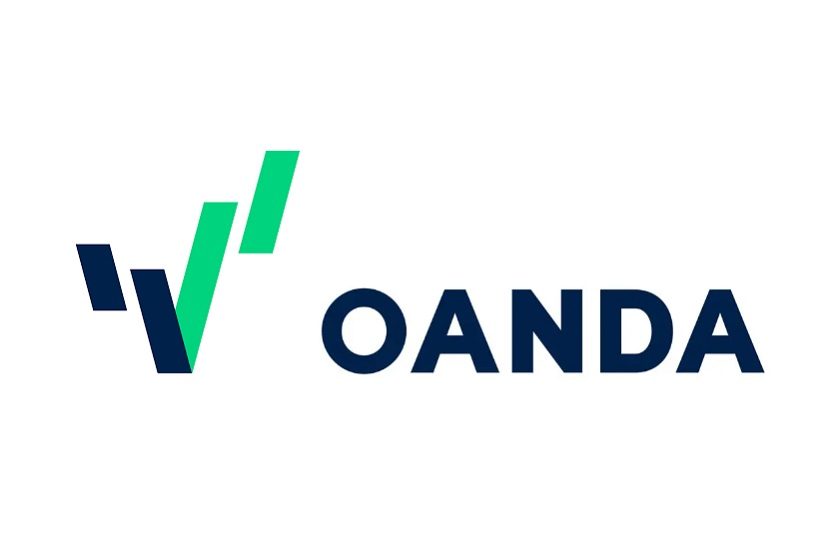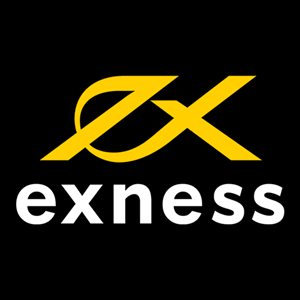Germany has a strict regulatory body (BaFin) and a growing trading environment. Many popular international brokers that offer services in the EU are available to German users. Select the best brokers based on trading assets, trading platforms, customer support, and overall quality of service.
Best Forex Brokers in Germany
-

NeoMarkets is praised for its user-friendly approach, making it accessible and straightforward for novice and experienced traders to navigate the platform.
-

NeoMarkets allows trading cryptocurrencies through CFDs at competitive costs, providing traders with exposure to this popular asset class.
-

NeoMarkets is regulated by the Financial Services Commission (FSC) in Mauritius, adding an element of oversight and security for its clients.
-

NeoMarkets has a limited selection of deposit and withdrawal methods, potentially inconveniencing clients who prefer a broader range of options.
-

To access the demo account, users must first complete the registration process, which might deter those who prefer exploring the platform before committing.
-

NeoMarkets’ website lacks readily available information about its various account types, potentially making it challenging for traders to select the most suitable option.
-
24/7 instant money withdrawal
-
Affiliate Program
-

NeoMarkets is praised for its user-friendly approach, making it accessible and straightforward for novice and experienced traders to navigate the platform.
-

NeoMarkets allows trading cryptocurrencies through CFDs at competitive costs, providing traders with exposure to this popular asset class.
-

NeoMarkets is regulated by the Financial Services Commission (FSC) in Mauritius, adding an element of oversight and security for its clients.
-

NeoMarkets has a limited selection of deposit and withdrawal methods, potentially inconveniencing clients who prefer a broader range of options.
-

To access the demo account, users must first complete the registration process, which might deter those who prefer exploring the platform before committing.
-

NeoMarkets’ website lacks readily available information about its various account types, potentially making it challenging for traders to select the most suitable option.
- Withdrawal fee$0 (conditions apply)
- Deposit fee$0
- Max Leverage1:500
-

High Leverage Options
-

Low Initial Deposit Requirements
-

Lack of Proper Regulation
-

Withdrawal Issues
-

Poor Customer Support
-
24/7 instant money withdrawal
-
Specialized trading accounts
-

High Leverage Options
-

Low Initial Deposit Requirements
-

Lack of Proper Regulation
-

Withdrawal Issues
-

Poor Customer Support
- Withdrawal fee$0
- Deposit fee$0
- Max Leverage1:3000
-

Regulated by Multiple Tier-1 Authorities
-

Competitive Trading Conditions
-

Wide Range of Trading Platforms
-

Higher Commissions on Certain Platforms
-

Limited Educational Resources Compared to Other Brokers
-

Not Available Worldwide
-
24/7 instant money withdrawal
-
Specialized trading accounts
-
Free VPS hosting
-
High leverage
-

Regulated by Multiple Tier-1 Authorities
-

Competitive Trading Conditions
-

Wide Range of Trading Platforms
-

Higher Commissions on Certain Platforms
-

Limited Educational Resources Compared to Other Brokers
-

Not Available Worldwide
- Withdrawal fee$0
- Deposit fee$0
- Max Leverage1:10000
-

Highly Regulated Broker: Libertex is regulated by CySEC, and has been operating for over a decade making it one of the reputable names in the brokerage space.
-

Extensive Range of Underlying Assets: Wide range of CFDs (300+ across all major markets) plus real stock investment.
-

Major and Proprietary Trading Platforms: You can access popular trading platforms like MT4 and MT5. In addition, you can also trade with the company’s proprietary trading platform.
-

Leverage Capped at up to 1:30 for Retail Clients: Retail leverage is capped at 1:30 because of CySEC regulation.
-

No Islamic (Swap-Free) Account: The broker does not offer Swap-Free/Islamic accounts. You can explore other brokers who offer swap-free trading on TopBrokers.
-

Limited Availability: Only clients from EEA Area and Switzerland are accepted.
-
Affiliate Program
-
Very Low Commissions
-
Proprietory Trading Platform
-
Real Stock Options
-

Highly Regulated Broker: Libertex is regulated by CySEC, and has been operating for over a decade making it one of the reputable names in the brokerage space.
-

Extensive Range of Underlying Assets: Wide range of CFDs (300+ across all major markets) plus real stock investment.
-

Major and Proprietary Trading Platforms: You can access popular trading platforms like MT4 and MT5. In addition, you can also trade with the company’s proprietary trading platform.
-

Leverage Capped at up to 1:30 for Retail Clients: Retail leverage is capped at 1:30 because of CySEC regulation.
-

No Islamic (Swap-Free) Account: The broker does not offer Swap-Free/Islamic accounts. You can explore other brokers who offer swap-free trading on TopBrokers.
-

Limited Availability: Only clients from EEA Area and Switzerland are accepted.
- Withdrawal feeLow (depends on platform)
- Deposit fee€0
- Max Leverage1:30
-

Regulated by Top-tier Authorities
-

Low Spreads and Commissions
-

Popular Trading Platforms
-

Limited Asset Coverage
-

Platform Selection Limited
-
Specialized trading accounts
-
Free VPS hosting
-
24/7 instant money withdrawal
-

Regulated by Top-tier Authorities
-

Low Spreads and Commissions
-

Popular Trading Platforms
-

Limited Asset Coverage
-

Platform Selection Limited
- Withdrawal fee$0
- Deposit fee$0
- Max Leverage1:888
-

Wide Range of Account Types: PU Prime provides a variety of account types designed to suit different trading styles and experience levels, from beginners to advanced traders.
-

Great Leverage: Control larger positions using minimal capital, thanks to leverage of up to 1:1000. This allows you to maximize opportunities in the market but remember, while higher leverage can enhance potential gains, it also increases risk.
-

24/7 Multi Channel Support: Round-the-clock assistance is provided by PU Prime through multiple channels, including live chat, email, and phone support. Services are offered in 18 languages, ensuring accessibility for a diverse range of traders.
-

Slightly Higher Spreads: For no-commission accounts, spreads starting at 1.3 pips are slightly higher than the industry average.
-

High Minimum Deposit: High minimum deposit for the low-spread and commission-based accounts
-

No EU Regulations: Despite being regulated by 4 authorities, including top-tier ASIC, the broker does not offer dedicated EU regulation for European clients.
-
24/7 Multilingual Customer Service
-
Proprietary Copy Trading App
-

Wide Range of Account Types: PU Prime provides a variety of account types designed to suit different trading styles and experience levels, from beginners to advanced traders.
-

Great Leverage: Control larger positions using minimal capital, thanks to leverage of up to 1:1000. This allows you to maximize opportunities in the market but remember, while higher leverage can enhance potential gains, it also increases risk.
-

24/7 Multi Channel Support: Round-the-clock assistance is provided by PU Prime through multiple channels, including live chat, email, and phone support. Services are offered in 18 languages, ensuring accessibility for a diverse range of traders.
-

Slightly Higher Spreads: For no-commission accounts, spreads starting at 1.3 pips are slightly higher than the industry average.
-

High Minimum Deposit: High minimum deposit for the low-spread and commission-based accounts
-

No EU Regulations: Despite being regulated by 4 authorities, including top-tier ASIC, the broker does not offer dedicated EU regulation for European clients.
- Withdrawal fee$0
- Deposit fee$0
- Max Leverage1:1000
-

Top-Tier Regulation
-

Low Forex Fees
-

No Withdrawal Fees
-

High Stock CFD Fees
-

Limited Product Portfolio
-

User Interface Could Be More Intuitive
-
Specialized trading accounts
-
24/7 instant money withdrawal
-

Top-Tier Regulation
-

Low Forex Fees
-

No Withdrawal Fees
-

High Stock CFD Fees
-

Limited Product Portfolio
-

User Interface Could Be More Intuitive
- Withdrawal fee$0
- Deposit fee$0
- Max Leverage1:50
-

Unlimited demo account: Both new and experienced traders can access the different HYCM demo accounts across the broker’s platform for as long as they like. This will help new players become better skilled and experienced players more familiar with the various trading environments on the platform.
-

Supports multiple languages: Another HYCM bonus is its earned regulatory approval in 140 countries. This strongly indicates the broker’s versatility. Depending on the traders’ nationality, anyone can enjoy full access to the trading platform in their preferred language.
-

Long-standing reputation: With over 40 years in the financial industry, HYMC stands tall as an industry leader that has stood the test of time. Its financial services have also improved over the years to increase the platform’s functionality and create an enjoyable trading experience.
-

Customer support is unavailable during weekends: Since the broker offers financial services for some trading instruments that operate 24/7, customer support must be available round the clock. However, HYMC’s customer support services across all platforms are only available on weekdays. This means traders have to wait till weekdays to access customer support if the need arises on weekends.
-
24/7 instant money withdrawal
-

Unlimited demo account: Both new and experienced traders can access the different HYCM demo accounts across the broker’s platform for as long as they like. This will help new players become better skilled and experienced players more familiar with the various trading environments on the platform.
-

Supports multiple languages: Another HYCM bonus is its earned regulatory approval in 140 countries. This strongly indicates the broker’s versatility. Depending on the traders’ nationality, anyone can enjoy full access to the trading platform in their preferred language.
-

Long-standing reputation: With over 40 years in the financial industry, HYMC stands tall as an industry leader that has stood the test of time. Its financial services have also improved over the years to increase the platform’s functionality and create an enjoyable trading experience.
-

Customer support is unavailable during weekends: Since the broker offers financial services for some trading instruments that operate 24/7, customer support must be available round the clock. However, HYMC’s customer support services across all platforms are only available on weekdays. This means traders have to wait till weekdays to access customer support if the need arises on weekends.
- Withdrawal feeNo
- Deposit feeNo
- Max Leverage1:400
-

OANDA is among the few international online forex brokers that accept U.S. clients.
-

The broker’s trading platforms are unique with features of various valuable tools and resources, including the famous Dow Jones Forex Select news and trading calculators.
-

OANDA does not require a fixed initial deposit on the standard account.
-

OANDA’s financial offerings have some irregularities that may only suit some traders
-

-Trading on OANDA may incur several fees, including a monthly inactivity fee
-
Exceptional Execution
-
US Clients
-
Scalping
-

OANDA is among the few international online forex brokers that accept U.S. clients.
-

The broker’s trading platforms are unique with features of various valuable tools and resources, including the famous Dow Jones Forex Select news and trading calculators.
-

OANDA does not require a fixed initial deposit on the standard account.
-

OANDA’s financial offerings have some irregularities that may only suit some traders
-

-Trading on OANDA may incur several fees, including a monthly inactivity fee
- Withdrawal feeN/A
- Deposit feeN/A
- Max Leverage1:50
-

No obligation demo accounts with US$50,000 of virtual funds to practice with
-

24/5 Customer support available
-

Multilingual support in 14 languages
-

Limited trading platform options
-

Limited trading instruments
-

Only forex and CFD trading
-
24/7 instant money withdrawal
-
Free VPS hosting
-
Specialized trading accounts
-

No obligation demo accounts with US$50,000 of virtual funds to practice with
-

24/5 Customer support available
-

Multilingual support in 14 languages
-

Limited trading platform options
-

Limited trading instruments
-

Only forex and CFD trading
- Withdrawal feeN/A
- Deposit feeN/A
- Max LeverageN/A

